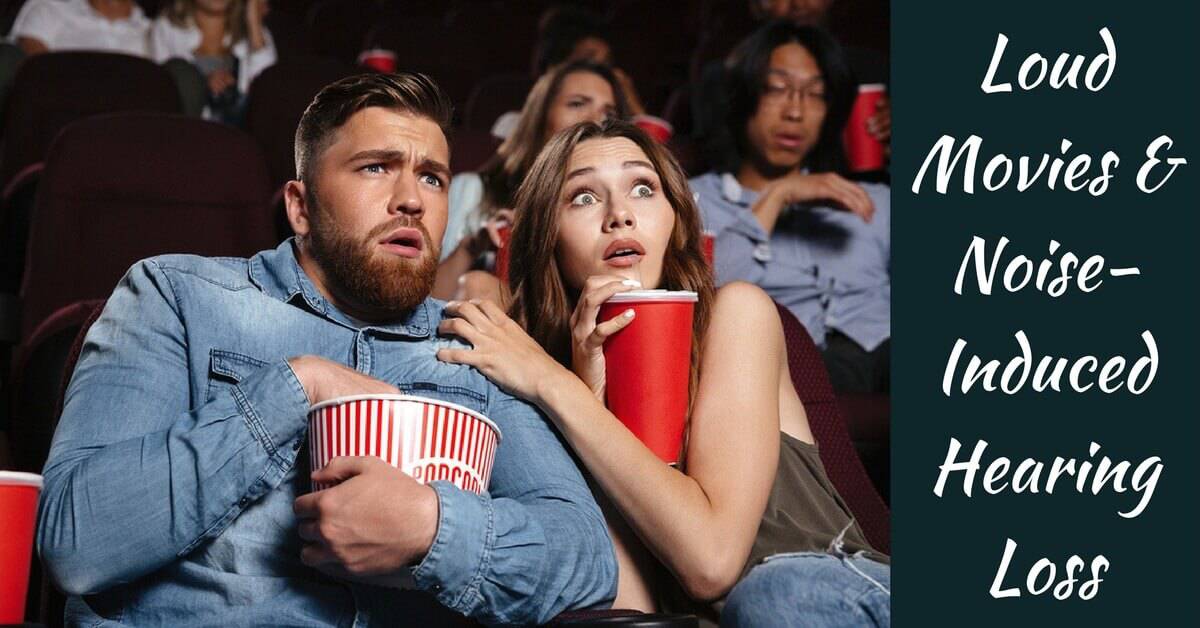The human ear evolved in a much quieter environment than the volume of today’s man-made sounds. And technology marches on as our world becomes increasingly louder every day. In order to create a more dramatic entertainment experience, it now seems that theaters are cranking up the volume. This might feel more invigorating to movie goers at first, but in the course of a lifetime, loud sounds can do considerable damage to our ears.
The sensitive structures of hearing
The way that our ears process sound is fairly simple. Sound vibrations are received as information in our inner ear. Tiny, sensitive cells exist in this protected place giving us the capability to safely hear noise levels from a loud shout all the way down to perceiving the softest whisper. Once sound information is received, it travels along the auditory nerve up and into our brains, which is where we make meaning from the sounds that reach us.
Over time, like the rest of our bodies, those delicate cells of the inner ear, responsible for much of our sound perception, become worn down. This is one of the causes of age-related hearing loss.
Noise-induced hearing loss
Another way we can damage the sound receptors of the inner ear is through exposure to too loud noises. This can happen in an instant, with a traumatic and extremely loud event, or over time with prolonged exposure.
The National Institute on Deafness and Other Communication Disorders (NICDC) reports that a recent analysis concluded nearly one in four adults in the United States between the ages of 20 and 69 years old has hearing loss that suggests noise-induced hearing loss.
Our volumes keep increasing
In 2015, the World Health Organization (WHO) released a report expressing concern over the potential hearing damage being experienced by teenagers and young adults aged 12-35 years in middle- and high-income countries. According to data from numerous studies, nearly 50% are exposed to unsafe levels of sound from the use of personal audio devices. Every time you see someone walking around with earbuds, which are now as ubiquitous as sunglasses, it’s a safe bet that their volume levels are much too high.
And unsafe listening practices aren’t just occurring in private, they’re spreading out into public places, too. That same WHO report also cited data regarding all around entertainment volume. Approximately 40% of those studied are regularly exposed to potentially damaging levels of sound at entertainment venues, like a movie theater.
What is an unsafe volume?
It might be that individual listening preferences are influencing the levels of sound in public places, too. We’re significantly plugged into our personal devices, is it possible that our hearing barometers are out of whack already?
Noises over 85 decibels are considered to be potentially dangerous. This is the standard enforced by the Occupational Health and Safety Administration (OSHA) when evaluating workplace safety regarding noise exposure.
Decibel levels at movie theaters
Recently, a piece of investigative journalism was conducted to discover exactly how safe the movie theater is for our ears. It turns out that after visiting multiple New York City movie theaters, there were many instances in which volume levels spiked over 85 decibels, from 97.2 dB to 104.9 dB. As you might expect, those higher decibel levels were recorded more frequently when the sound meter was taking in an action film.
While standards exist surrounding the ways that movies are made and delivered to theaters, the volume levels are unregulated from there. Each individual theater is ultimately individually responsible for how the volume is controlled.
Protect your ears at the theater
The American Hearing Research Foundation warns of dangerously loud sound levels at movie theaters saying that they are “a source of premature hearing reduction.” If a movie is too loud, especially to the point that it is causing pain or temporary deafness, absolutely complain to the management. It might be that particular theater runs their films at a much higher volume, so try visiting a different theater in order to seek out a healthy listening experience.
Remember that damage from loud noises has a compounded effect. Lower your volumes across the board and refrain from repeated exposure to too loud sounds from personal devices and larger entertainment experiences. When you can’t control the external volume, use earplugs or step away. Your current set of ears is the only one you’ve got, so make sure they’re taken care of!
If you are concerned about your hearing abilities, or simply need to schedule your next hearing exam, contact us at Desert Valley Audiology. Our team is here to support your hearing health.

